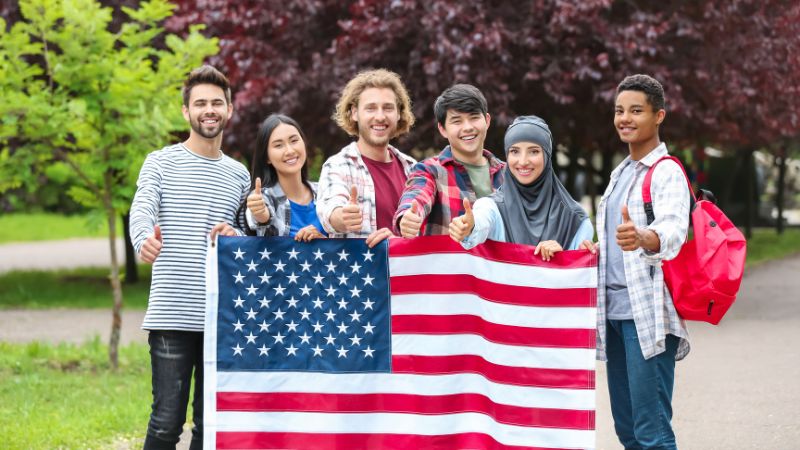Have you ever dreamed of living and working in the United States? For those with extraordinary abilities, the EB1 visa is a golden ticket to permanent residency. I’ve been through the complex world of immigration and know the mix of excitement and anxiety it brings.
Proving extraordinary ability for an EB1 visa can feel like climbing Mount Everest. But don’t worry about the numbers. With a 70-75% acceptance rate, your dream of living in America is possible. This guide will help you understand the USCIS requirements and build a strong case for your abilities.
If you’re a brilliant scientist, a gifted artist, or a business visionary, your talents are worth showing. The EB1 visa is not just about paperwork. It’s about sharing your life’s work and the impact you’ve made. We’ll look at how to prove your extraordinary ability and make your American dream come true.
Are you ready to start your journey towards permanent residency? Let’s begin and learn how to create a strong EB1 visa case that highlights your extraordinary abilities.
Understanding the EB1 Visa Category
The EB1 visa is for exceptional individuals wanting to work in the United States. It’s for those with extraordinary skills, top researchers, and top executives from around the world. Let’s look at the different EB1 visas and their benefits.
What is an EB1 Visa?
An EB1 visa is a special work visa. It’s for people who stand out in their fields. The EB1A visa is for those with amazing skills in science, art, education, business, or sports. You don’t need a job offer for this visa.
Types of EB1 Visas
There are three EB1 visas. The EB1A is for people with extraordinary skills. The EB1B is for professors and researchers known worldwide. The EB1C is for executives moving to a U.S. branch of their company.
Benefits of an EB1 Visa
EB1 visas have many perks. They process faster than other visas. You don’t need a job offer or labor certification for these visas. They also get priority in getting a green card.
Your spouse and kids under 21 can join you in the U.S. too. With an EB1 visa, you’re on a fast track to living in the United States permanently.
Eligibility Criteria for EB1 Extraordinary Ability
The EB1A visa has strict rules. You must show you have extraordinary ability in areas like sciences, arts, education, business, or athletics. The USCIS has clear guidelines to prove your exceptional skills.
You must meet at least three of ten criteria to qualify. These include winning major awards, being part of elite groups, or publishing about your work. Your contributions to your field, like writing articles or showing art, also count.

One-time major achievements are also considered. This could be a big scientific find or a famous art performance. But, it’s not just about the achievement. You must also have a long history of being recognized nationally or internationally.
To make your case stronger, offer proof that you stand out in your field. This could be through comparisons or expert opinions. Aim to show you’re among the best in your area, meeting the EB1A visa’s high standards.
How to Prove Extraordinary Ability: A Guide to Creating a Strong EB1 Visa Case
Getting a strong EB1 visa application ready takes a lot of work and the right evidence. You need to show you have an extraordinary ability in your field. This means meeting certain criteria and showing off your achievements.
Meeting the Initial Evidence Requirements
To begin your EB1 visa application, you must meet at least three out of ten criteria set by U.S. Citizenship and Immigration Services. These include winning national awards, being part of elite groups, and having your work published. Make sure your evidence is thorough and well-supported.
Demonstrating Sustained National or International Acclaim
Your evidence must show you’ve been recognized over a long time. This could be through big projects, being in the news, or winning awards. The EB1 visa is for those at the peak of their careers.
Providing Evidence of Extraordinary Ability
Focus on the quality of your evidence, not just how much you have. Include major contributions, articles you’ve written, and leadership roles in top organizations. Even a high salary can prove your skills are truly exceptional in your EB1 visa application.
The 10 Types of Evidence for EB1 Extraordinary Ability
Applying for an EB1A visa requires proving your extraordinary ability. The USCIS lists ten EB1A evidence types to show your top skills. Let’s look at these criteria to strengthen your application.
Awards and Prizes
National or international awards boost your application. These can be top doctoral dissertation awards or honors from professional groups. The award’s significance and its exclusivity are key.
Membership in Prestigious Associations
Being in select associations that honor excellence can help your case. These groups should be exclusive and celebrate your skills.
Published Material About You
Articles about your work in professional journals are strong evidence. They prove your work is recognized and respected by peers.
Judging the Work of Others
Being asked to review others’ work shows your expertise. This could be reviewing research or judging competitions in your area.
To qualify for the EB1A visa, you must meet at least three criteria. Each piece of evidence should clearly show your national or international acclaim.
Crafting a Compelling EB1 Visa Petition
Creating a strong EB1A petition needs careful planning and a good visa application strategy. You aim to show USCIS your extraordinary ability. Start by gathering your evidence, like awards, memberships in top groups, and published articles.
Write a detailed cover letter that explains how your evidence proves your claim. Make sure your documents are well-organized and labeled. Talk about your area of expertise and your big contributions. Letters from experts can be a big help for your EB1A petition.
When you’re getting ready to file with USCIS, remember that they look at many petitions every day. Make yours stand out by telling a clear story of your fame in your field. Checking your facts before filing is key, as shown by recent AAO decisions. A well-made EB1 visa petition boosts your approval chances and lowers the risk of getting a Request for Evidence.
Common Challenges and How to Overcome Them
The EB1A visa process can be complex. You might face several challenges along the way. Knowing how to handle these can improve your chances of success.
Addressing Requests for Evidence (RFEs)
RFEs are common in EB1A applications. If you get one, don’t worry. Read it carefully and give a detailed response. Collect more evidence that answers the concerns raised. Remember, an RFE is a chance to make your case stronger.
Dealing with Rejections
If you get a visa rejection, take time to understand why. Look at the feedback closely. Think about refiling with a stronger application. You might need more evidence or to present your achievements more clearly. Don’t give up – many have overcome initial rejections.
Navigating the Application Process
The EB1A journey can be long. Keep up with USCIS timelines and policy changes. Here are some tips: keep detailed records of your achievements, get peer validation, and consider premium processing if you’re in a hurry. Remember, each case is reviewed individually, so focus on your unique contributions.
Overcoming EB1A challenges takes patience and preparation. By understanding potential roadblocks and having strategies, you can move through the process better. Stay focused on showing your extraordinary abilities in your application.
Conclusion
Getting an EB1A visa for extraordinary ability needs careful planning and a strong immigration strategy. You must show your top talents and lasting success in your field. The process might seem tough, but with the right documents and approach, you can get U.S. permanent residency.
USCIS wants applicants to meet at least 3 out of 10 criteria to prove they have extraordinary ability. This can be through major awards, being written about, or being in elite groups. The EB1A visa has perks like applying on your own and flexibility in your job, making it a great choice for those with top skills.
The EB1A process usually takes 1 to 2 years. The I-140 petition takes 9 to 15 months, but you can speed it up by paying a premium processing fee (it was $2,805 in Dec 2023). Remember, changing your status or going through consular processing takes more time. Keep up with USCIS rules and think about getting legal advice to make your way through this complex process smoothly.

